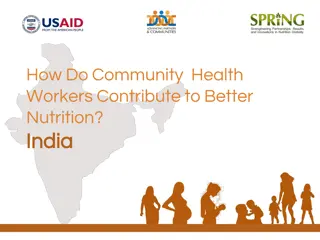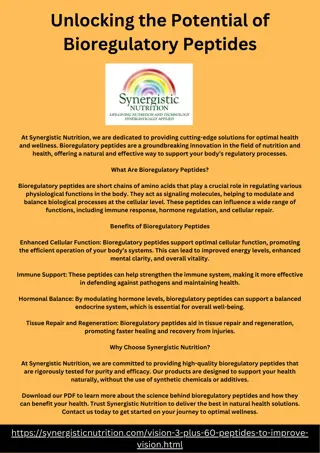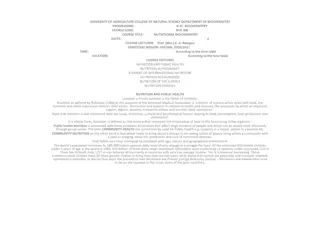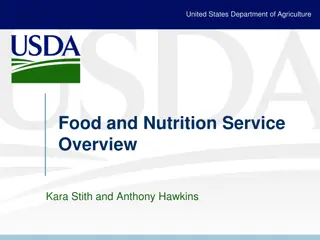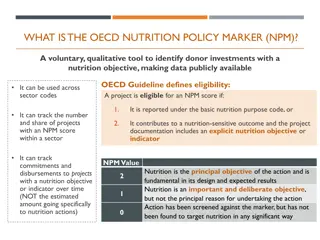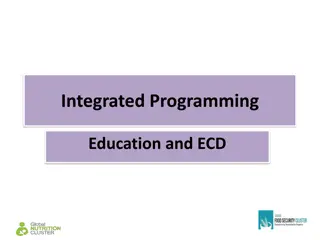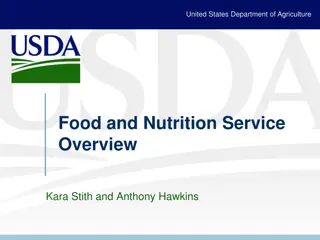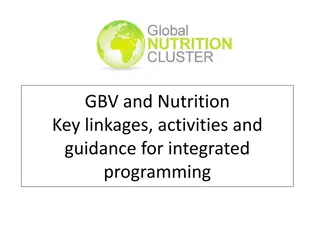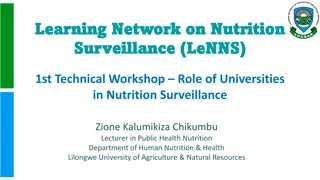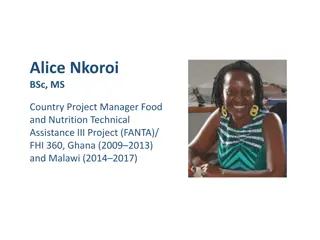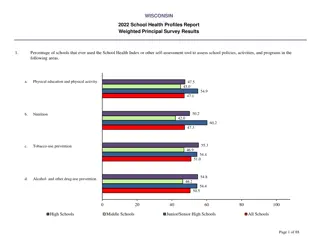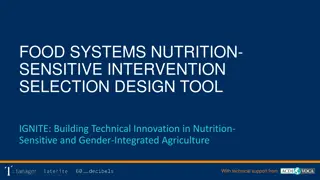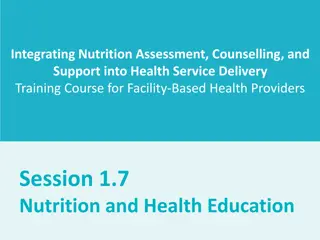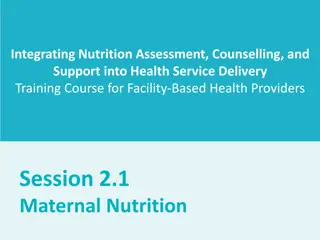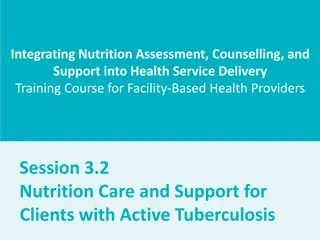Synergistic Role of Agriculture, Health, and Education in Nutrition Programs
Agriculture, health, and education play vital roles in nutrition program implementation. They are interconnected as agricultural practices impact health and nutrition outcomes. Agriculture is crucial for providing essential nutrition, while the health of individuals in agriculture affects productivity. Health and nutrition are closely linked, with undernutrition affecting immune function and illness impacting nutritional status. Overall, these sectors work synergistically to improve nutrition outcomes and overall well-being.
Download Presentation

Please find below an Image/Link to download the presentation.
The content on the website is provided AS IS for your information and personal use only. It may not be sold, licensed, or shared on other websites without obtaining consent from the author. Download presentation by click this link. If you encounter any issues during the download, it is possible that the publisher has removed the file from their server.
E N D
Presentation Transcript
ROLE OF AGRICULTURE, HEALTH AND EDUCATION IN NUTRITION PROGRAMME IMPLEMENTATION NTD 404 MISS TAIWO O.M
DEFINITION Agriculture is defined as the science and practice of cultivating the soil, producing crops, and raising livestock, and the preparation and marketing of the resulting products (Merriam-Webster 2010) Health refers to a state of complete physical, mental and social well-being and not merely the absence of disease or infirmity (WHO 1948). Nutrition is a dimension of health relating to the macro and micro nutrient adequacy of an individual s diet.
LINKAGE OF AGRICULTURE, HEALTH AND NUTRITION Agriculture, health and nutrition are synergetically linked as follows: agricultural production systems impact strongly on workers health, nutrition and well-being. Anything that affects agriculture will affect health and nutrition. Conversely, anything that affects health and nutrition will have implications for agriculture.
AGRICULTURE AND NUTRITION Agriculture is the only realistic way for most people to get the nutrition they need. In many poor countries, agriculture is highly labour intensive, and productive agriculture requires the labour of healthy, well nourished people. However, more than half of the world s poorest people live in farming communities, including many suffering from under-nutrition.
AGRICULTURE AND HEALTH There is a reciprocal process in which the health of individuals involved in agriculture may affect agriculture itself An unhealthy agricultural population may provide less labour and resources, with consequences for productivity and implications for consumers.
HEALTH AND NUTRITION Health and nutritional status are directly linked through a synergetic relationship. Undernutrition is one of the major causes of immune deficiency. Illness on its part impairs nutritional status by reducing both appetite and the body s ability to absorb nutrients, which in turn lowers the individual s resistance to further illness Health status can have a significant impact on nutritional outcomes by affecting a household s ability to take part in productive activities that generate food or income to purchase food.
Poor health potentially contributes to undernutrition through a number of pathways such as: 1. Decreased work productivity resulting from ill or deceased household members; 2. Increased medical and health care costs for households and villages, especially with the return of many sick urban dwellers and migrant labourers; 3. Increased household dependency ratios through loss of productive adults and addition of orphans of dead relatives into households; and 4. Loss of local intergenerational knowledge and skills.
How can Agriculture Improve Health and Nutrition Household ability to produce, purchase and consume more, better and cheaper food. Agricultural advances, such as the Green Revolution, led to the doubling of cereal production and yields, improving the well-being of many people and providing a springboard for remarkable economic growth. Biofortification efforts to breed and disseminate crops that are rich in micronutrients, such as vitamin A, zinc and iron, have improved vitamin and mineral intake among consumers in Africa and Asia. Increased rural income, allowing people to improve their diets.
Agricultural activities can also generate economy-wide effects such as increasing government revenues to fund health, infrastructure and nutrition intervention programmes.


